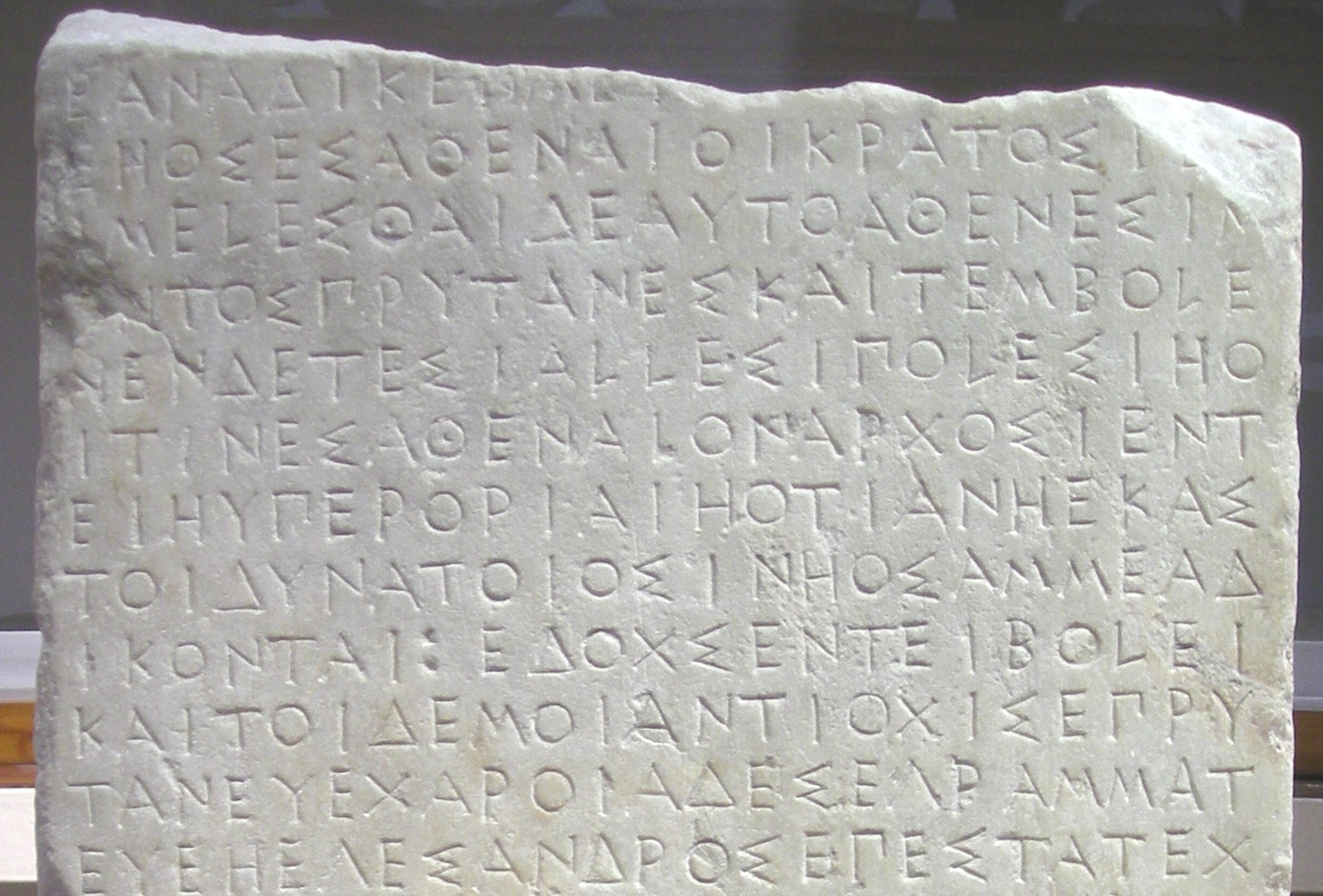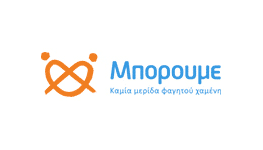Alpha, Beta, Gamma, Delta… Omega… But also α=1, β=2, γ=3…ι=10, κ=20, ρ=100 and so on. Are they just simple marks on the stones? Are they letters and numbers or symbols with a meaning which defined the course of mankind?
There are many ancient myths about who created the first alphabet. Was it Athena, Prometheus, Orpheus, the Muses or Cecrops? Ancient and contemporary historians’ opinions also vary. Although today the relation between speech and writing seems inevitable, it certainly hasn’t always been this way. Many ancient people had not been using writing and at some point they had to “borrow” an alphabet.
In 700 B.C. every Greek city-state used a local but similar alphabet. The ancient Greek writing was associated with the Ionic and the Attic dialect. The democratic government and the wealth of Athens offered excellent education, helped spread the use of writing and thus reduced dramatically the illiterate among the people. Typical examples of Attic prose are found in historical, philosophical and rhetorical texts, while Aristophanes’ comedies use the simple everyday language spoken by the average educated free citizens of Athens. The Athenian civilization is considered to be a typical “written civilization” due to the many inscriptions found baring either private or public written messages. From 500 B.C. onwards, Attic dialect became the official language for all educated Greek speaking people, and was spoken all over the Greek state and the colonies.
The Greek alphabet became the basis for the Latin alphabet; also it was used in numbering and as symbols in many sciences such as mathematics, medicine, astronomy e.t.c. Today most sciences still use authentic Greek-international words.








